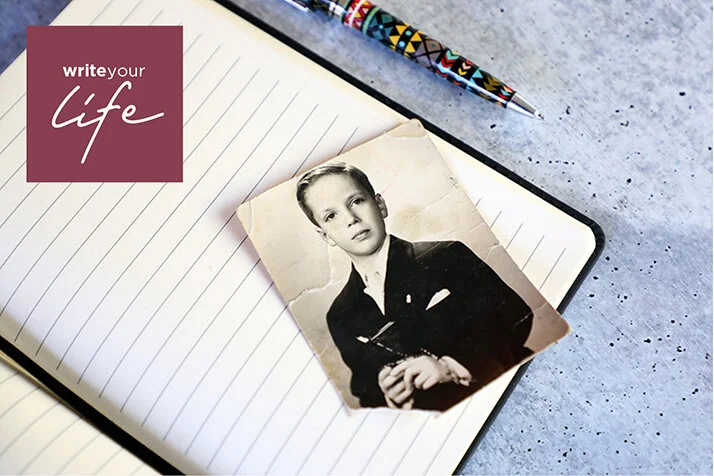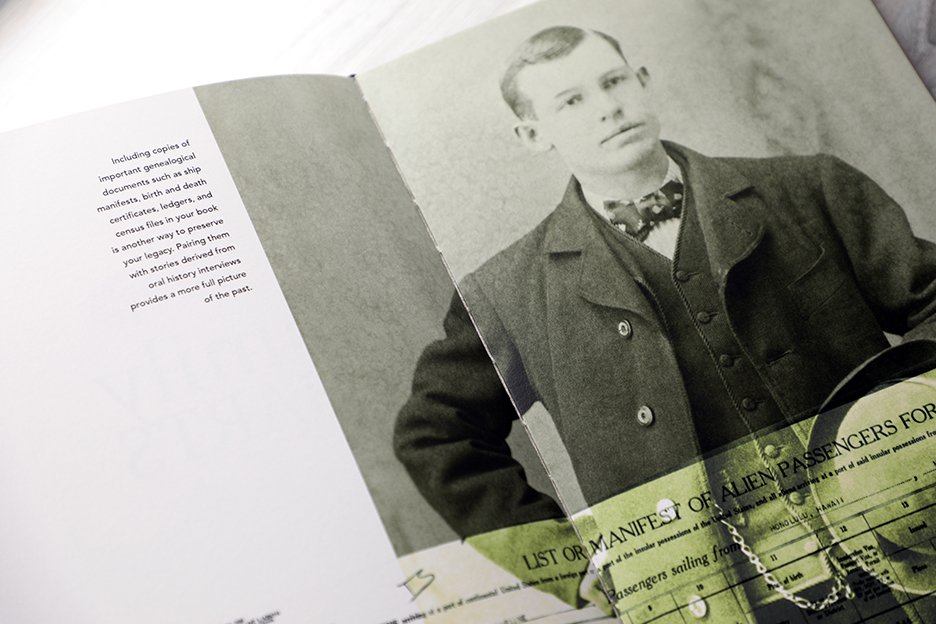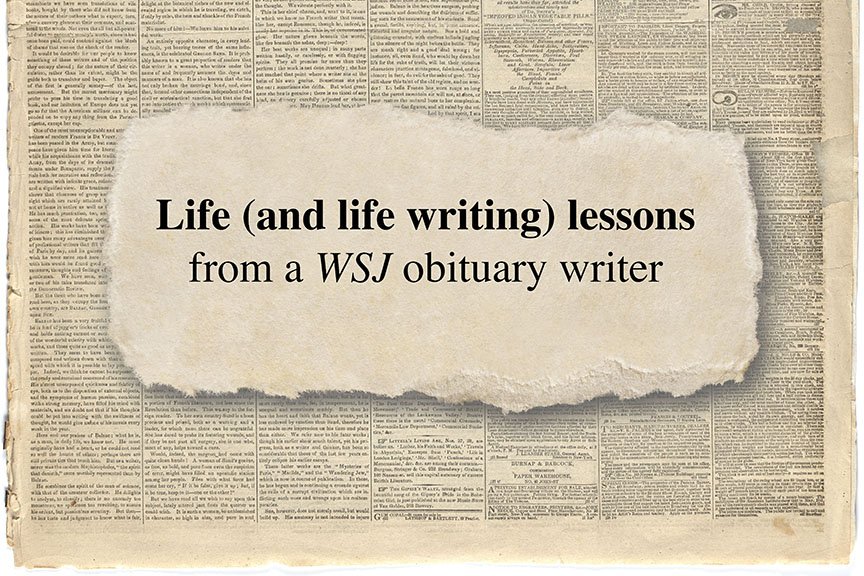Storytelling hack: Talk, don’t write.

Telling your stories out loud and recording them is a great option if you want to preserve your personal history but don’t feel comfortable writing.
Have you thought about writing your life story—but then refrained because you don’t think you’re a good enough writer?
I’ve got three important things to say to you:
You are good enough.
Sure, you may want to take a virtual writing course or hire a memoir coach to help you improve your writing, or read one of these valuable books with life writing guidance. But know this: You don’t have to. You don’t need to strive to write a bestseller; rather, focus on reflecting back on your experiences, finding the lessons, the love, the joy, and the hardships, and sharing them with those you love. Whatever you write will be more than good enough—for you (you do know that writing your memoir is beneficial for YOU, right?), and for any family members you would like to leave your stories to. So write on—please!
Don’t change your voice.
Your memoir should sound like you: the way you talk, the way you weave a tale. It should reflect your values and your experiences. “There’s power in allowing yourself to be known and heard, in owning your unique story, in using your authentic voice,” Michelle Obama has written. “And there’s grace in being willing to know and hear others.” So don’t focus on sounding writerly or clever, and don’t edit out those colloquial phrases you say often. Focus instead on being authentic and truthful, and allowing yourself to be vulnerable as you tell your stories.
Drop your pen and pick up a recorder.
The blank page before you is just a vehicle. If you are paralyzed by the thought of writing your life stories, drop your pen (or step away from your keyboard) and instead begin recording your stories out loud. All you need is the voice recorder app on your smart phone or a digital recorder, a quiet space, and some time. I recommend either brainstorming a list of memories or creating a life timeline beforehand, so you can reference these and feel inspired to tell your tales. Then hit “record” and start talking. Maybe do this once a week, or every morning (setting some kind of regular schedule will help you finish one day!). Down the road you can transcribe these oral histories and maybe edit them into something more cohesive and inspiring. But for now all you need to do is (a) get started and (b) keep talking!
“Story is the umbilical cord that connects us to the past, present, and future. Family,” Terry Tempest Williams says. “Story is a relationship between the teller and the listener, a responsibility…. Story is an affirmation of our ties to one another.”
Your story, moreover, is a gift.
I’m sure you’ve heard the expression “done is better than perfect,” and oh how applicable that is here! Whether you write your stories or speak into a recorder, the end result will be a gift to your family. One day in the future, one of your descendants will read your words and be grateful you took the time to preserve them. How powerful is that?
Writer’s block can happen to the best of us. This simple idea—keeping a notebook of self-generated writing prompts—will keep your memoir ideas flowing.
Looking for a meaningful gift for your parents? An annual subscription to our Write Your Life memory and writing prompts may be just the thing—or, maybe not.
Learn about our Write Your Life course, providing memory prompts, writing guidance and a dose of inspiration to anyone who wants to preserve their stories now.
Here’s one time I gave in to my client’s preferences that still haunts me: Why we did not identify people in any of the photos in their family history book.
While your memoir is telling your stories in your words, a family tree chart outlining your relationships has a real place in that book—here’s why.
The first draft of your life story is likely to include some stuff you decide to cut later—but should none of your challenges make it into your final book?
Good writing prompts will rid you of blank-page anxiety—and you can easily write your own! Here, 5 steps to drafting a library of personalized memoir prompts.
While a journal called “Memories from Mom” or “Grandma’s Life Story” may be brimming with good intentions, the fact is that most of them remain mostly blank.
While all five of these books add value to any memoirist or life writer’s library, I’ve identified which is best for you based on your goals and experience.
A love letter (or book!) overflowing with memories makes a thoughtful anniversary gift. Here, 14 writing prompts to help you honor—and surprise—your partner.
Wondering if 52 weeks of memory prompts will help YOU write about your life at last? Here, answers to the most commonly asked questions about Write Your Life.
Every week you’ll get themed prompts to stir your memories, tips to write your stories with ease, and more! A unique gift for your loved one (or yourself)!
Sometimes all it takes to get unstuck with your personal writing is paying attention. Here are some easy (fun) ways to come up with journal writing prompts.
Ready to edit your family history or life story book? Follow these three tips from a personal historian to ensure everything is clear for your descendants.
This new book by Ruta Sepetys, You: The Story, is a great tool for those who want to use their own life experiences to inform their fiction writing.
Have you ever thought about what will happen to your diaries—who will read them, how you may one day use them? Join me as I consider this profound question.
Photos that have no captions will leave readers of your heirloom book guessing. Make sure to write captions that either tell a story or provide vital details.
Smells (such as of Mom’s perfume or Grandpa’s grease-stained clothes) and sounds—especially music—can trigger long-buried memories helpful for writing memoir.
Why leave your legacy in the hands of someone else? Try your hand at writing your own obituary with these tips—it just may be the start of your mini memoir.
Don’t let all those memory-keeping ideas swirling around your head overwhelm you. Instead, take some time to hone in on which stories to tell first—here's how.
Ethical wills—also called legacy letters—are great ways to pass on values and life lessons to your descendants. These two books will help you create your own.
Any life story book passed down to the next generation is a gift—but it's an even better gift if it sounds like the real you: Write with your authentic voice.
Research and fact-checking are integral parts of creating your memoir—but there's a good chance that it may be getting in the way of your actually writing it.
I might not have time for the full-fledged memoir I want to write, but I can make time every day for this easy and significant journal exercise—and so can you.
If writing your memoir means enough to you to put it on a bucket list, please read this—I’ll help you easily move it from future project to present-day endeavor.

























Is there ever really a ‘right’ time to start writing your memoir? There’s not, in my opinion, but here are two questions to ask yourself to help you decide.